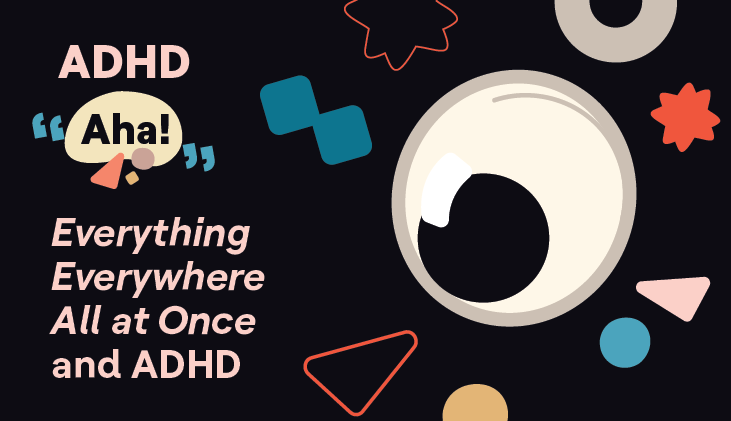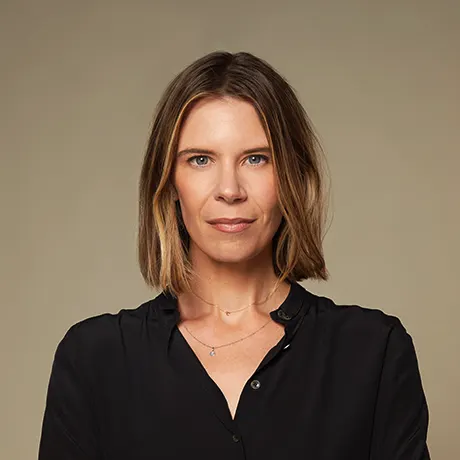Stay in the know
All our latest podcasts delivered right to your inbox.
Laura talks with film writer and editor Ariel Fisher about Best Picture winner Everything Everywhere All at Once and its many connections to ADHD. How making the movie was an ADHD “aha” moment for director Daniel Kwan. How the film itself feels like a depiction of the ADHD brain. And how characters in the film show ADHD behaviors.
Fisher, who has ADHD, also talks about how the film reflects her own ADHD journey — from getting evaluated and diagnosed to taking ADHD medication.
Related resources
Read about director Daniel Kwan’s ADHD “aha” moment
Check out Ariel Fisher’s piece about Everything Everywhere All at Once and ADHD
Learn about the ADHD brain
Episode transcript
Laura: From the Understood Podcast Network, this is "ADHD Aha!," a podcast where people share the moment when it finally clicked that they or someone they know has ADHD. My name is Laura Key. I'm the editorial director here at Understood. And as someone who's had my own ADHD "aha" moment, I'll be your host. I'm here today with freelance writer and editor Ariel Fisher. Ariel has ADHD and she's written for a number of online film and television publications, including a piece that she wrote last year for Slash Film called "Everything Everywhere All at Once, or How I Stopped Fighting and Learned to Love My Brain." Welcome, Ariel. Thanks for being here.
Ariel: Thank you very much for having me.
Laura: I'm so excited to have you here. I'm not going to lie. I'm a little bit nervous, not because of you, but because this is a different approach for us on "ADHD Aha!" This is a bonus episode; we are going to be talking about "Everything Everywhere All at Once." I am not a film critic. I know that you are, but I am not. And we are going to be centering this episode around that film, which won huge at the Oscars recently, took home seven statues, including Best Picture. And if you will allow me a little bit more preamble, Ariel, before we jump in.
Ariel: Absolutely.
Laura: I just want to ground the audience in what we're going to be talking about today. So, I'm hoping to go over three things. The third one being the most important because it's about you, Ariel. But the first thing I want to chat about is how creating the movie, "Everything Everywhere All at Once," was an "aha" moment for one of the directors of the film Daniel Kwan. So, chat about that.
I want to talk about how the movie portrays ADHD, whether that's intentional or not, and also how the movie itself can kind of feel like the inside of an ADHD brain and how people have reacted to that. And I think the third thing I want to get to is, your story and the parallels that you see between the film and your experience with ADHD. So, I'm most excited to talk about that. The first thing I want to chat with you about is when you saw this film, did you know that creating the film was an ADHD "aha" moment for Daniel Kwan?
Ariel: For the most part, I was hearing about it as this look at intergenerational trauma and how families passed that down and how much pressure there can be specifically in Chinese families. Obviously, that was the focus of this. But then my co-worker Hana, she brought up that it felt like ADHD. And I was like, "Oh, OK, I'm sold." And I mean, I was really intrigued, but now I was like, "OK, I have to go and see this. I have to see what's going on with this."
Laura: And yet and to your point, this movie is about so many things. I mean, hence the title and especially what you just very articulately summed up there. The ADHD is, you know, I don't want to imply that this movie is all about ADHD and their only intention in creating this film. But I do want to read the quote from an article on Salon.com that kind of took my breath away. The author of the article was asking the directors, Daniel Kwan and Daniel Scheinert, the Daniels, if ADHD was an influence on the film, and Daniel Kwan replied and said that as they were making the film, they were aware of the ADHD connection.
So, he started researching it, and this was his quote to the writer of that article. "I stayed up until like four in the morning and just reading everything I could find out about it, it being ADHD, just crying, just realizing that, "Oh my God, I think I have ADHD." So, this movie is the reason why I got diagnosed. So, I freaked out when I read that because this is, that's an "aha" moment and this is a show called "ADHD Aha!" I mean, what do you think about that?
Ariel: So, I remember hearing about that and hearing about this interview where he talked about the connection to ADHD, and it struck me so much. Like I was, I genuinely wasn't really prepared, but I was also very familiar with that sensation, that moment where your brain lights up and you go, "Oh, this is me. I have this."
And I think it's fascinating that it started from a place of wanting to be respectful. Like, they were like, "Well, what if your brain was everywhere all at once? And that kind of sounds like ADHD and we should probably look into it to be respectful in order to portray it accurately and not like a stereotype."
So, starting with that as the main reason why they even started investigating it in the first place, wound up giving them this really interesting foundation to make something that was legitimately good representation for invisible illnesses, ADHD specifically, like that idea of doing something like that was never at the forefront of their minds. But because it was, I guess because it was in the background of Daniel Kwan's mind, it became the forefront of the project.
And when you watch this, I'm digressing, of course, I'm going off on a tangent. When you look at the rest of their work and like their music videos and stuff, it kind of makes sense. You kind of go, "Oh yeah, no, you definitely have ADHD. Yeah, for sure."
Laura: Yeah, I think I remember reading about how Michelle Yeoh, who plays Evelyn and she also won Best Actress, which was fabulous, that she is kind of almost like an avatar for some of these ADHD behaviors. Did you notice any of that? And do any come to mind for you?
Ariel: Oh, yeah. Well, while watching the movie, it was, it was actually really surreal. I only got diagnosed when I was about 33, and I'm 35 now, so, watching it was like watching myself pre-diagnosis. Watching her, like watching Michelle Yeoh's character, specifically watching Evelyn, was watching pre-diagnosis Ariel. What was interesting about that was watching Michelle Yeoh was kind of more this, she was more like my father. Like I saw more of the traits in her that I saw were the ADHD from an older generation that hasn't yet been diagnosed, that is resistant to it, that isn't really, that kind of dismisses it or like, "Well, no, that's not me."
And, you know, kind of like the line in the movie where she says, "Well, no, that's you know, I know who I am. You're young. Your brain is still changing, you're still figuring things out. But I know who I am." And that's, you can know, you can know who you are and have no clue at the same time. And that's what's so much of that is.
Like all of these depictions of ADHD became kind of these ineffable qualities of ADHD that I've kind of started to realize have been there my whole life. And with like with Jobu when she does her head tilt thing and then clicks back and she's able to kind of tap into all of these different parts of the multiverse and herself simultaneously. It's, that just makes me think of every single time I've gone, "Oh, wait, I learned how to do that. Yeah, I can totally, you know, zero in on this specific thing or, you know, access that part of my mind that has something that I learned or taught myself in a hyper-fixation moment like 10 years ago, before I knew what hyper-fixation was."
And like, it all kind of comes together in this really beautiful, chaotic, confusing fusion of knowledge, experience, everything. And Michelle Yeoh kind of has that moment, which also kind of translates in the same way. Michelle Yeoh is kind of that really interesting fusion between the hope of a younger generation getting diagnosed and kind of realizing that it can be a superpower and the disillusionment and denial of an older generation thinking there's nothing that can be done about it, just ignore it. "Oh, it's not that bad. Oh, it's not that so. It's not that." Whatever.
Laura: I love the Jobu head tilt thing that you mentioned. I hadn't thought about it that way. And that's, that was a really interesting way of putting it. I felt a lot of ADHDness, I guess, in the Evelyn character when she's sitting at the desk where Jamie Lee Curtis works and she's totally, I guess you could say, zoning out and she's in multiple rooms that were once and people are like, "Are you here?" And then she comes back to the room like...
Ariel: Yes, yes. I'm here, I'm here.
Laura:...this kind of, I'm here, not dissociating maybe, but like, just, just so distracted. So, I mean, did you catch that as well? I'm sure you did.
Ariel: Oh yeah. Oh, for sure. That moment where, like you can be in the middle of a thought and then all of a sudden, you're wondering if you should have pasta for dinner. And...
Laura:Right, right.
Ariel: ...then you snap back and you're like, "Wait a minute, what was I talking about? Oh, shit." It's that weird kind of coexistence of having your mind feel like it's everywhere all at once.
Laura: Yeah, exactly. I mean, the title itself, Ariel, it's like it just blows my mind. "Everything Everywhere All at Once." I was in a therapy session and that just kind of rolled off my tongue and I was describing all these ADHD challenges that I had. And he was like, "It sounds like your brain is chaos." And I was like, "Yeah, my brain is chaos right now. And I can't compartmentalize."
I mean, I actually really appreciated how they separated the film into the three thirds, even though, like here now we're going to talk about Everything. Now we're going to talk about Everywhere. Now, at the very end, we're going to talk about All at Once. I needed that. I'm curious to hear from you how you have heard people who don't have ADHD as far as, you know, maybe some of their frustrations with the film. I'm just going to guess that you've heard that before.
Ariel: Oh, yeah.
Laura: Tell me about it.
Ariel: It was really fascinating hearing people talk about it and just being like, "It's just too much. It's just noise. It's just a lot." And it's like, "Yeah, yes, that's the point. It's supposed to be like, is this not what your brain is like? Is this not what it feels like for you on a daily basis? Every waking moment of every single day?" No? OK. Just me? Fine.
Laura: I've had some people say, "This film just needed an editor," which is ironic now because they won best editing.
Ariel: And the editing is outstanding.
Laura: I know, but I'm like, but that's, what I like about this film is I feel like rather than adapting to, and again, I'm making this all about ADHD, I know the film is not all about ADHD, but like rather than adapting to a more traditional format that people are used to, say, "No, this is how our mind is working."
Ariel: Exactly. And that's the thing that makes it so good. And that's one of the aspects, one of the many, many aspects of this film that makes, that just gets me so excited and so hyped, especially for other people with ADHD, and I'm like, "Oh, did you see the movie about our brains? Isn't it great?"
So much of our lives as people with ADHD is rooted around trying to exist as neurotypically as possible in a neurotypical world as a neurodiverse person, and it doesn't work. It's like trying to fit a square peg in a round hole and it is a constant struggle. It never ends, and the more you fight it, the worse it feels. And the more you hate yourself and the more you feel like you're not good enough and you're just not trying hard enough. And maybe you're just too lazy. Or maybe this, maybe that, maybe the other.
But when we're allowed to do things our way, when we're allowed to learn in the way that we learn best, when we're allowed to create in the way that makes sense for us to share in the way that speaks to us and any of that. It's incredible. It's beautiful. It's terrifying. It's wonderful in a million different possible ways. And this is what you get when you allow someone with ADHD to function the way their brain does, rather than conforming to some kind of neurotypical framework.
And that's the, that's like it's not for everybody, and not a lot of people are going to get that not only is it, as you've mentioned, it's about many different things aside from ADHD, but in the way that it is connected to ADHD. It's made from the vantage point of someone who has it about the experience of having it and at the same time about the experience of existing while it happens to be there. So, it's that simultaneous like this is about ADHD, but it's also just about living when you happen to have it. And that's for people like us. That's huge. Like you're going to watch it and you're going to see yourself on the screen in a way that is impossible to articulate.
Laura: You see yourself on the screen and also feel yourself just in the way that the movie was made. I mean, everything you say is so right on. I wish I had written down the exact quote from Daniel Kwan when he accepted one of his many Oscars. He didn't use the term ADHD, but about unlocking your genius because it's in there. Do you remember?
Ariel: I don't remember exactly what the quote was, but I remember that I, oh my God, I cried so much during the Oscars and was so happy for everybody. And then when Daniel Kwan was giving his various acceptance speeches, so much of it was. If you know, you know, and you could hear the ADHD parts in it of like, you know, unlocking your genius and tapping into the part of yourself that just kind of makes you feel free and capable instead of feeling trapped and forced into conformity and forced into something that's not you.
Laura: Daniel Kwan, if you're listening, I want you to come on this show. I want you to tell me all about your ADHD "aha" moment because we have a space here for you. I know that you're very famous now, but come and visit, please.
Ariel: He is also very much not about like, at least just based on the way he has been going through the like the Oscars season and everything, he doesn't believe his own hype, which is appropriately very ADHD because none of us believe our own hype or think there's hype to be had.
Laura: I hope for his sake, I mean, I'm sure it's humility. I hope it's not imposter syndrome, because that's, you know, a common issue for people with ADHD.
Ariel: Yeah, it probably is. But it's probably also humility. It's that weird combination where you kind of have to, you know, work it out in therapy and figure out which is which. But it's some, it's everything everywhere all at once.
Laura: If seven Oscars can't prove that you shouldn't have imposter syndrome, then we're really in trouble.
Laura: I want to hear more about you and how you see yourself in this film in terms of your ADHD.
Ariel: The best way that I can articulate my experience with this movie is that watching it felt like the experience of getting assessed, getting my diagnosis, and starting medication.
Laura: Why don't you take me through each of those? How does the movie feel like getting assessed?
Ariel: When I was getting assessed, I was in a really, really horrible place. I had dealt with depression and anxiety since I was like 16 years old. I always knew something was different about me and I never knew what, and I could never really figure out how to identify it.
So, after 33 years of fighting against myself, I kind of just broke. I needed to step away from work in everything for a few months, and I was starting SSRIs for what became diagnosed as generalized anxiety disorder, which I didn't know I had, but which makes sense because I always knew I had dealt with anxiety, but now it was like someone was saying, "Yes, no, you have this version of anxiety, which is terrible. Have fun."
So, my psychiatrist was like, because I brought up from the beginning, I think I have ADHD, and my psychiatrist was like, we will get there. We have to get the anxiety under control first. We can't just jump into giving you stimulant medication if that's not being handled, because it will make your life miserable. So, once we did, it kept feeling like, "Well, no, something's still not right." And then that's when a psychiatrist was saying, "This is where the ADHD comes in." The anxiety is actually under control. That vibration you're feeling that like constant hum, that vibration in your skull is actually just the untreated ADHD.
And that in and of itself was this big "aha" moment because I hadn't had anyone identify what that sensation was before. And so much of the beginning of that movie knowing you're different. Knowing you struggle with certain things, you're miserable in your life, but you're just going to keep going and you're going to make other people miserable along the way. Like I was being horrible. Not willingly, but I was just in such a terrible, terrible place. I was pushing people away from myself. I was pushing away my friends. I was being hurtful to my mom and my husband.
They both kind of had to stop and like, tell me at one point, like, "We're here with you. We just want to help you. You can't treat us badly." And I didn't even fully realize that I was, like, I knew that I was hurting people, but I didn't realize that it was because I wasn't addressing the hurt itself that I was experiencing and like, it's OK to be in pain, but that's something to address. That's not something to put on other people.
And so much of Michelle Yeoh's character is that experience of lashing out, being kind of condescending, being dismissive. You kind of rely on the tools with which you were raised, which more often than not were harmful, sometimes actively, and sometimes just through nobody's fault. It's like sometimes it just happens. You don't know what you're dealing with, so you don't know that your best intentions are harmful.
My parents certainly didn't know and they had no idea. Like when I got assessed and diagnosed and everything, they were completely shocked. And my mom has continued to be completely shocked and told me, you know, how sad she is that she didn't notice it sooner and that she couldn't make my life easier sooner. And my dad the same thing.
Laura: I remember being there myself with the, and it was the same. Got to get your anxiety under control and then we'll figure it out. And I was like, "But I'm snapping at everyone and I'm distracted and I'm unfocused and I'm just I'm in the psych pit." Yup. And I'm like, "Come on down here with me, everybody."
Ariel: Yeah, exactly. Because you don't think you can get out of it. You don't think there, you have only ever existed in that place.
Laura: Right.
Ariel: You don't know that there is an option for something else, because everyone has always told you that the only option is to keep being miserable in order to present more like everybody else.
Laura: Right. Exactly.
Ariel: You are wrong. The way you are is wrong. What you're doing is wrong. You need to do it more like me, more like them, more like everybody else. Have you tried just focusing a little harder? Is the bane of my freaking existence.
Laura: Oh, it's the worst. It's the worst. So, that was the assessment portion. Now the diagnosis portion, talk to me about your parallel between your own diagnosis to the movie.
Ariel: In the movie, when Michelle Yeoh is learning, when Evelyn is learning about Jobu Tupaki and that there are these multiple universes that exist simultaneously and that you can access them. If you tap into a specific part of your brain. And sometimes it takes assistive devices, and sometimes if you're skilled enough or if you're, you know, trained enough, you can do it without the assistive devices. Like there's, you know, Jobu Tupaki doesn't need them, right?
Laura: Right.
Ariel: And just while watching it, it started to feel very familiar. And when I got when I got my diagnosis, after years of suspecting, I probably suspected I had ADHD for about six or seven years and kept putting it off and putting it off. And there was always something to happen.
And then the pandemic happened and all of a sudden, I was shut off from all of the extra external stimuli. And, you know, I couldn't go out and go and do things. I couldn't go to a concert with friends, I couldn't go to dinner with friends. Like all of that extra noise in my life was just suddenly gone. And I was left with this quiet din of myself without the extra stimulation that was potentially quieting my mind and making it easier for me to function. And I had no choice but to face it.
And so, I was just kind of stuck in this painful limbo, not knowing if it'll ever feel better, because I had never felt what better was, and this is all I knew. And the day I went for my formal assessment, and they did the test with like the computer and, you know, monitoring my movement and everything and all that, all that jazz. And he says, "Oh, you have ADHD."
And it was like, it was like my heart exploded. There was just this immense sense of joy that I couldn't have anticipated and excitement. And then at the end of the appointment, I walked out, and I went to the waiting room and my husband was waiting for me and I came out of the door into the waiting room, locked eyes with him, started sobbing and laughing and said, "I have ADHD." And I didn't stop crying or laughing for almost an hour.
Laura: Oh, wow.
Ariel: It was relief. It was vindication. It was joy. It was excitement. It was elation. It was just, it was electric. It was this incredible sensation of relief that I don't think I had ever experienced before in my life. And it was the acknowledgment that you aren't broken, you aren't wrong. You are just different and different isn't bad. And it coordinated for me with, in the movie, when Michelle Yeoh starts actually trying things and getting the hang of it, and then she learns the story about Jobu Tupaki and how she created Jobu Tupaki. That all kind of flowed into the diagnosis part.
Laura: The fact that she created Jobu Tupaki like, how does that relate? Tell me more about that.
Ariel: And that one's a big one, because with that elation — and I'm assuming this happens for most people who are diagnosed late in life — I was filled with an immense amount of grief and sadness, which is also, you know, what Evelyn's character experiences in the film is this kind of wistful, you know, what might have been.
Laura: Everything that could have been, right? Her life as a famous actress, as a movie star.
Ariel: As a movie star, as a singer, as all these different things. My experience of that was so profoundly painful. And it just, it completely shifted — this is going to sound really overdramatic — it completely shifted the axis of my entire world. I kind of sunk into a pit for a couple of weeks where all I could think about was all of the things that now made sense about my life and all of the things that I probably could have done if I didn't have this or if I had been diagnosed when I was younger, if I had gotten the help I needed and been given the space to exist, rather than being told that I'm too much, I'm too loud, I'm too emotional. You know, all of these things.
And even just being able to learn more about my body, like I didn't know how badly ADHD can impact your menstrual cycle, for example.
Laura: Right.
Ariel: And vice versa. And learning that as an adult and being like, "Oh my God, the reason why I react this, that's why?"
Laura: Hell, yeah, so many things just click, right?
Ariel: Everything clicks, and with the clicking comes that acknowledgment of what could have been. And also the acknowledgment of like, what you could have had, what you could have been, where you could have gone, how much easier things could have been, but also who you might have been like, "Are you living the life that you were supposed to live or are you living someone else's life because you were too afraid to pursue what you really wanted?"
Laura: Or what you really needed.
Ariel: Yeah, and like the acknowledgment also of this idea that, you know, it comes from somewhere. It's not coming from nowhere. And I inherited this, and this is where the generational trauma stuff comes into effect, too, is with the diagnosis comes the acknowledgment that this came from somewhere.
Laura: Right.
Ariel: And it came from somewhere that did not want to acknowledge mental illness. And I'm like 99.9% certain that it came from my dad. And he has never looked into it because his parents didn't really talk about that stuff. There was nothing wrong with you. You were fine. You were just very eager or very focused.
And especially because he was a boy, you know, when he'd hyperfocus on something, it was you would nurture that. You would nurture that kind of interest. Whereas my aunt, his older sister, got the complete opposite treatment and was raised to be little more than a trophy wife. And that really impacted even her mental health so that they never then acknowledged. And that became kind of a family tradition.
Laura: What about the medication part of it? What's the parallel? I have a medication connection to the film as well. I'm curious if it's the same as yours.
Ariel: The medication connection is a little, it's more of a feeling. When they're talking about what happened to Jobu Tupaki, and you see that she was just subjected to all of this stuff which created her essentially, is kind of what I draw as a parallel or as an allegory for when you're being given the genetic stew that makes you the way that you are. And, you know, you're being given that genetic makeup from the parent that had it, or the parents who had it.
And when Michelle Yeoh then starts to really tap into accessing these different places and realizing that she kind of has control over it, the medication comes in when Evelyn's husband in the film, Waymond, who's played by a Ke Huy Quan, who won Best Supporting Actor and deserved it because he was heartbreaking and devastating and wonderful.
She was in so much pain before she was able to find out how to exist as herself. She was so hurt and scared and angry that she literally stabbed her husband. She picks up a broken shard of glass and actually stabs him with it, and thankfully, not mortally, but she stabs him and that's plenty.
Laura: Right.
Ariel: And then he leads with love. And he talks about how I know that you're all scared right now, and nothing makes sense. But we just have to be kind.
Laura: Oh, it's OK.
Ariel: And oh, yeah, no, I'm. I'm an exceptionally comfortable crier.
Laura: OK. That reminds you of the medication and the speech?
Ariel: The speech and the way it comes across, the way it kind of gives her this moment of clarity. And she can help herself and she can help her daughter and be the googly eye on the third eye.
Laura: Yeah, exactly.
Ariel: It's kind of it's very literal in its metaphor.
Laura: Right. Right. For sure.
Ariel: She's tapping into that new thing.
Laura: That new ability, that new harnessing.
Ariel: And when I started taking medication for my ADHD, the first day that I tried was such an overwhelming experience. My brain was quiet for the first time in my life, and I didn't know that that's what it could feel like. I didn't know that it could be quiet or still.
Laura: My God, I know, it's so powerful, right?
Ariel: It's so overwhelming. And things, sensations felt different. Like everything, because I guess I was working so hard to try and focus, and that energy wasn't going into that, like petting my dog. his fur felt softer, my husband holding my hand felt gentler, just sitting in silence felt comfortable, and I had never experienced that before. I was able to be still, and everything made sense. And that moment in the film is what that felt like to me.
Laura: Wow.
Ariel: It was this stillness, this calm, this balance.
Laura: Wow. Ariel, I relate to that so, so much. I remember it's not a feeling of feeling high. It's not a feeling of feeling low. Like if it's prescribed properly and you have ADHD, that's not what you should feel like, right? It's it just you're like, "Oh, this is what...
Ariel: Is this what normal people feel?
Laura: This is... Yeah. I was trying to find a way around the word normal, but yeah, exactly. Is this what, like neurotypical and normal people just, they don't have to fight their brain constantly, right?
Ariel: Yeah.
Laura: Do you know what part reminded me the most of medication or just made me feel that way?
Ariel: Tell me.
Laura: The rocks.
Ariel: Oh, yes. Yeah.
Laura: When Evelyn and her daughter, played by Stephanie Hsu, are now, who's also Jobu Tupaki, when they are now manifested as rocks and this other universe in the multiverse. And it's quiet.
Ariel: Yeah.
Laura: And they're just there and they're kind of bored.
Ariel: But they're content with their boredness, they're content with the nothing.
Laura: Yeah, I'm just like, "Oh, it's quiet." Especially in a movie that's full of so much noise and visual sensations and everything. All of a sudden you just stop and you're like, "Oh, we're calm now.".
Ariel: Yeah.
Laura: That was my moment. I was like, "Whoa, that was wild." That's what it felt like for me.
Ariel: That's a big one for me, too. It's so hard to pinpoint because that's the thing. It's so much of just the movement of the film, of how it progresses and how it moves through all of these things that it kind of bleeds together into this ineffable kind of experience.
Laura: Yeah, totally. It's a really special movie and not everybody loves it and I don't care.
Ariel: Yeah. And that's the thing. Like I remembered watching it with my mom after not that long ago and all she could say like, she liked it, but she was like, "It's a lot."
Laura: Right.
Ariel: And I said, "It's the inside of my brain."
Laura: Yeah, that's exactly what I said to my husband.
Ariel: And her jaw dropped and she was like, "Is your head that loud and chaotic all the time?" I was like, "Yep." That's the thing about this movie that is so important and why it's so incredible that something like this won Best Picture and is now canonized in such an official way. It puts on the screen an internal experience as kind of the ultimate form of representation for people with ADHD in a way that nothing else has.
If you're seeing representation of ADHD in film and television, nine times out of ten, it's Dug the dog from "Up." Which to be fair, I have my Dug days and I think we all have our Dug days. But like it's not kids running around screaming at each other constantly. There's so much depth and complexity and nuance and pain and everything to it. And it's like this movie takes an ADHD brain and somehow put it on film.
Laura: Yeah.
Ariel: I've never seen anything like that before. I've never seen anyone accomplish anything like that before. And now it exists. And now it's there for everyone. So future generations like the idea, feel the excitement I feel when I think of young kids who will get to see that movie for the first time. And be able to say, Wait, that's what my brain feels like.
Laura: Mm hmm.
Ariel: It's incredible. It's so incredible and important.
Laura: That is such a really good point that I hadn't thought of, the awareness that it builds for people who maybe don't know what this is like. So, Ariel, I'm so glad that you talked with me today about this. This has been everything and everywhere and all at once. I will include a link to the piece that you wrote in the show notes of this episode.
I encourage everybody to check it out. I'll also include a link to the article from Salon that mentions Danielle Kwan's "aha" moment. Yeah, I'm just so grateful that you're here and I feel you, and I see your little tears and I feel my little tears. Thank you so much.
Ariel: Thank you for having me.
Laura: You've been listening to "ADHD Aha!" from the Understood Podcast Network. If you want to share your own "aha" moment, email us at ADHDAha@understood.org. I'd love to hear from you.
If you want to learn more about the topics we covered today, check out the show notes for this episode. We include more resources as well as links to anything we mentioned in the episode.
Understood is a nonprofit organization dedicated to helping people who learn and think differently discover their potential and thrive. We have no affiliation with pharmaceutical companies. Learn more at understood.org/mission.
"ADHD Aha!" is produced by Jessamine Molli. Say hi, Jessamine!
Jessamine: Hi everyone.
Laura: Briana Berry is our production director. Our theme music was written by Justin D. Wright, who also mixes the show. For the Understood Podcast Network, Scott Cocchiere is our creative director, Seth Melnick is our executive producer, and I'm your host, Laura Key. Thanks so much for listening.
Host
Latest episodes
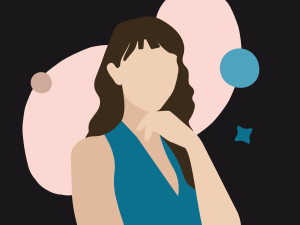
April 30, 2024
Author Ellyce Fulmore struggled with impulsive spending and doing “basic” daily tasks during the pandemic. The pain of coping with that led to her ADHD diagnosis.
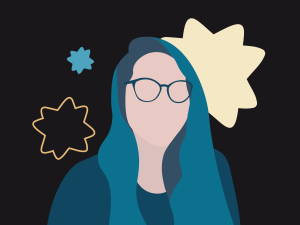
April 16, 2024
ADHD coach Jaye Lin was a gifted kid with undiagnosed ADHD. Now, she’s building communities and helping others cope with ADHD burnout.
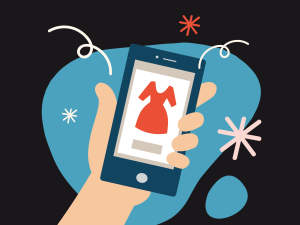
April 2, 2024
Writer Paulette Perhach had money coming in but struggled to keep it in her bank account. An ADHD diagnosis brought her struggles into perspective.
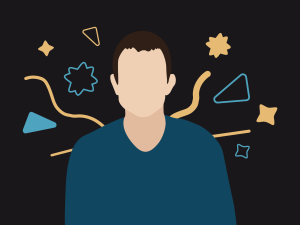
March 19, 2024
Eye to Eye founder David Flink is fighting the “just try harder” myth surrounding ADHD, dyslexia, and other learning and thinking differences.
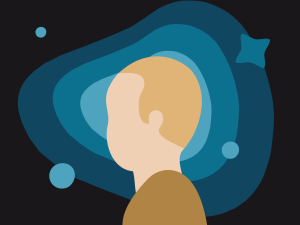
March 5, 2024
Peter Jones used to feel better saying he had a hearing problem rather than considering ADHD. Now, he knows he has ADHD and isn't afraid to say it.
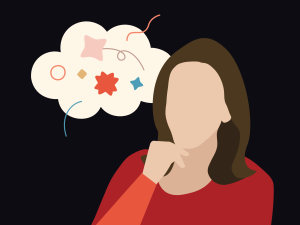
February 20, 2024
Before her ADHD diagnosis, ADHD coach Emily Weinberg thought she was just lazy. But in reality she was stuck in “analysis paralysis.”
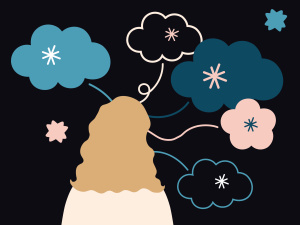
Carol Blumenstein was called an unteachable student. Now, she knows she has ADHD and dyslexia, and supports her five kids who learn differently, too.
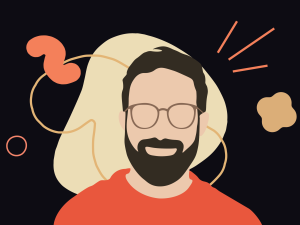
January 23, 2024
Executive coach, actor, and former criminal defense attorney Ernest Anemone shares his ADHD story — and why he questions the term “attention deficit.”
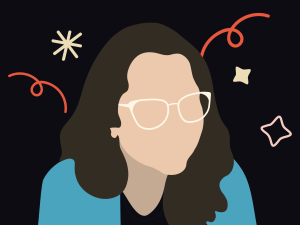
January 9, 2024
ADHD and post-traumatic stress disorder (PTSD) symptoms can look similar. And they can morph into what Hannah calls “a trauma ball of blame.”
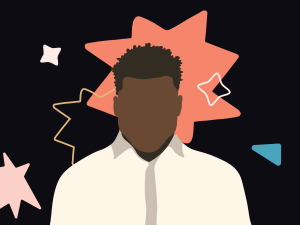
December 26, 2023
Livingston Steele was diagnosed with ADHD about a year into working at Understood.org. His experience and work have given him immense empathy for people with ADHD.
